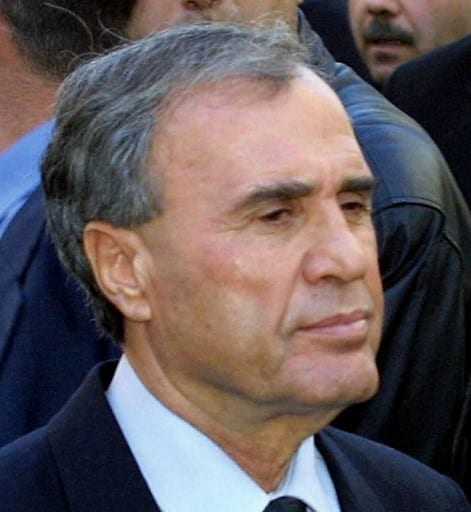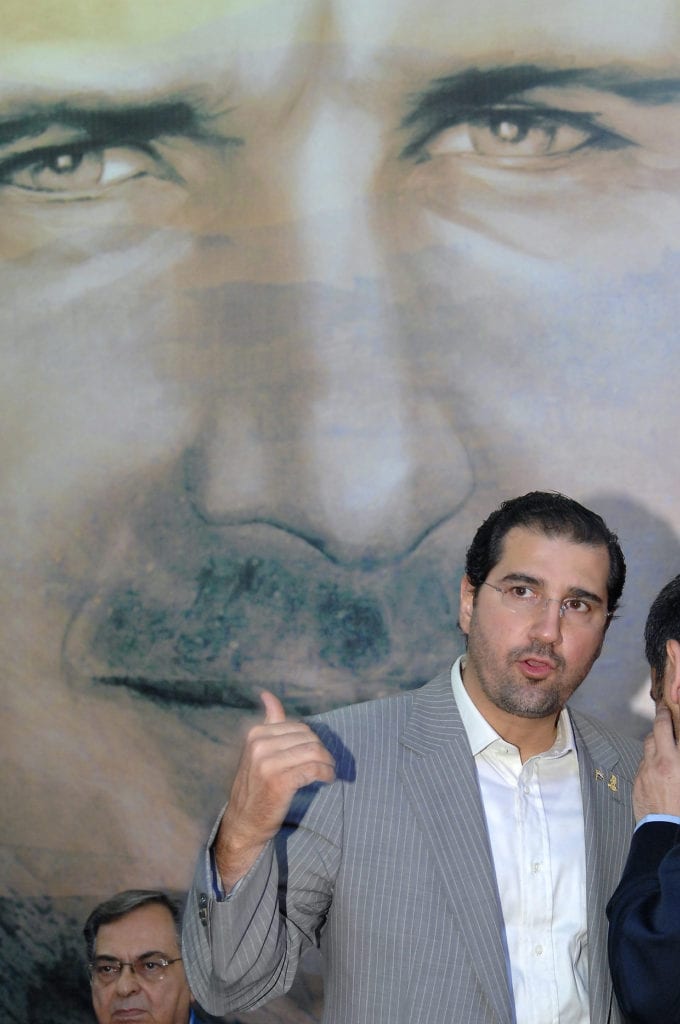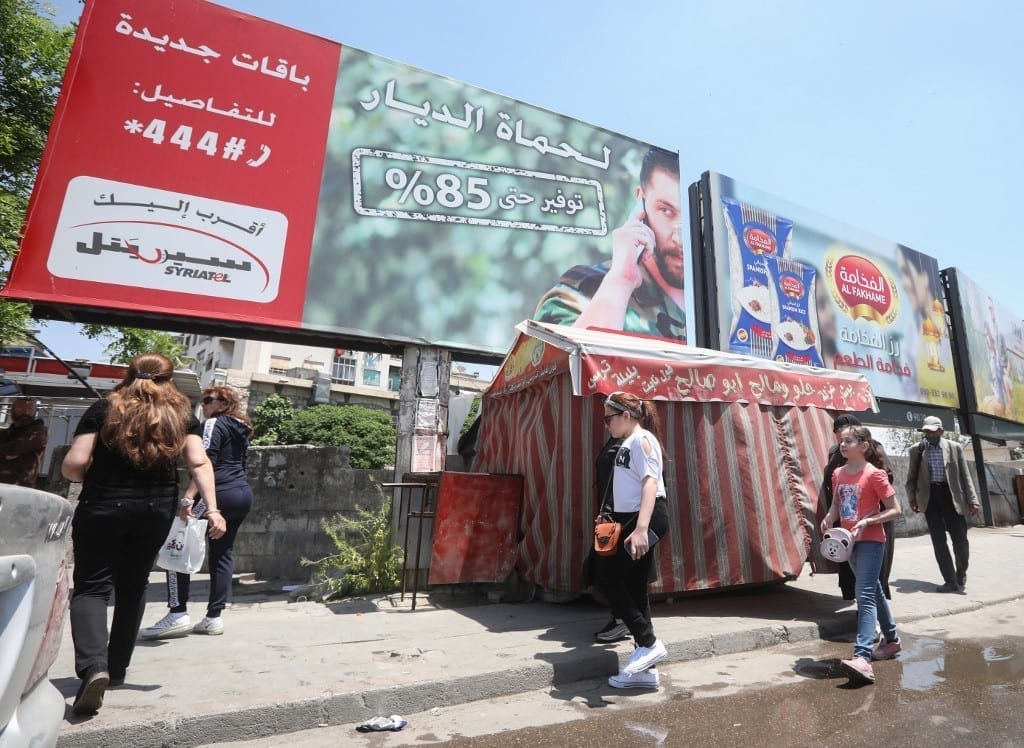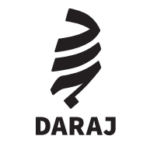Over the past 50 years, the Syrian regime has consistently adopted a policy of physical liquidation, not only for its opponents but also for its allies who no longer represent trump cards or benefits for its rule.
During both Hafiz and Bashar al-Assad’s rule, Syria witnessed liquidation operations targeting senior figures who held critical positions inside and outside Syria, most of whom were killed in mysterious circumstances.

The “suicide” of the Syrian intelligence officer, Ghazi Kanaan, who was the first Syrian man affiliated with the regime in Lebanon, in 2005, just seven months after the assassination of former Lebanese Prime Minister Rafik Hariri, is the best example of their liquidation policy. Speculations indicated that Kanaan had known “dangerous secrets” about the era known as the “Syrian tutelage over Lebanon,” and perhaps had secrets about the Hariri assassination itself.
Since the outbreak of the Syrian revolution in 2011, many of the figures who were involved in the military intervention in Lebanon, including the intelligence officer Jamei Jamei, the officer Rustom Ghazala, and others, have been liquidated. In addition to the “Crisis Management Cell” bombing, which targeted the National Security building in Damascus in July 2012, and claimed the lives of General Hassan Turkmani, and Al-Assad’s brother-in-law, Assef Shawkat, in addition to the Defense Minister Daoud Rajha, and head of the National Security Bureau Hisham Bakhtiar. The charge was then filed against “terrorists”, knowing that at that time the Syrian opposition or even the “Jabhat al-Nusra” were not in a degree of organization that would allow them to carry out such an operation.
The current rift between Bashar al-Assad and his wife on the one hand, and his cousin tycoon Rami Makhlouf on the other hand, raises questions about the regime’s ability to liquidate Makhlouf, after using him as a financial interface over the past twenty years. Makhlouf was the first one to enter the presidential palace to congratulate Bashar al-Assad in 2001, which was the starting signal for gaining control over the Syrian economy.
The fact that Makhlouf has huge investments outside Syria, some of them declared and others are unknown, makes the Syrian regime reluctant to get rid of him, as the latter would benefit from these huge properties and investments abroad.
These are the main reasons why the assassination of Rami Makhlouf sounds farfetched, at least during the current period, based on an in-depth research into Makhlouf’s relations inside and outside Syria, and a careful analysis of his speeches and the official response to them.


Popular Immunity
While I was watching the first video posted by Rami Makhlouf, a fellow journalist sitting next to me told me: “He has been stealing us for 20 years, and now he’s trying to use us to be part of his war.” I clearly told him that the video was not intended for us, but rather for a specific segment of the Syrian people that Rami Makhlouf knows well. This was evident by thousands of comments on his videos announcing supporting him against the actions of Assad and his wife.
Over the past twenty years, Rami Makhlouf has established a “charitable empire” represented by the “Al-Bustan Charitable Society” and the “Ramak Humanity” company, which is part of the “Ramak Holding” owned by Makhlouf.
These two bodies provided medical, food and relief support primarily targeting the Alawite community in Syria, through continuous and renewed projects, which contributed to promoting the image of Makhlouf among the members of these societies.
At a time when the Syrian regime was abandoning members of its army who were permanently disabled, the Al-Bustan Charitable Society specifically targeted this category, offering them surgeries, prostheses and medical benefits, which boosted Makhlouf’s presence among the children of this community. I remember that in 2012 one of my colleagues at the University of Damascus talked to me about him and referred to him as “The father of the poor.”
Certainly, it is not in the best interest of the Assad regime to create tension among members of this sect at the present time, which could lead to disastrous consequences.
Avoiding Angering Iran
It seems that the contest for influence between Russia and Iran has not been military, like the race to gain control over the Syrian territories, nor economical, through obtaining as much investment and economic privileges as possible.
This conflict has extended to a stage where each party adopted a group of allying Syrian businessmen, to use them as a tool between the Russians and Iranians in any future reconstruction.
To explain this race, Syria’s businessmen are currently divided into two categories, the first being the “old bourgeois”, or the “old economic guard”, which represents the businessmen who had economic influence before the Syrian revolution, headed by Rami Makhlouf. Some of those fled outside Syria, while others remained and became members of the Iranian alliance, due to the old commercial relations with Iran.
The second category consists of the “war businessmen,” whom the Syrian people did not know of before the revolution. But during the revolution, they suddenly appeared with billions of dollars in their hands, buying everything from factories, to companies, real estate, investments, and others, headed by the businessman Samer Al-Foz, who had committed a murder in Turkey and left it in mysterious circumstances, as well as the current People’s Assembly member and businessman Hussam Katerji, another godfather of the oil deals between the Syrian regime and ISIS during the latter’s control of the oil fields in Deir al-Zour.
It seems from this information that perhaps assassinating Makhlouf at this point will increase Iran’s anger, especially since the Iranians are already angry over the Russian acquisition of all the sovereign investment, while Iran came out empty handed, receiving only the investment of the Turkish and Gulf “legacy”, like hotels and some tourism and industrial sectors.


Nothing but “Syriatel”
The conflict between Makhlouf and al-Assad today also has a rather economic dimension: The Syriatel Mobile Telecom company, the Syrian mobile service provider, about which Makhlouf said in his latest Facebook post, “Young people want the company, looking for nothing but to control it, and leaving everything behind.”
Makhlouf, who used to be able to control the most sensitive Syrian state agency, today, is now unable to do anything in front of a small government institution whose name was not known by most Syrians, the so-called “Telecommunications and Post Regulatory Authority” (TRA). It seems that he’d gotten the green light from Asma Al-Assad to do whatever he deems suitable with Makhlouf.
Considering the way the Syrian regime is currently dealing with Makhlouf, it is evident that it only wants Syriatel and nothing else, as all documents published by Rami Makhlouf confirm that the latter had agreed to pay the 233 billion Syrian liras, which were suddenly imposed on his company, without any tax basis. But he pointed out that this was not enough, as he was asked to pay 120 percent of the company’s profit, after tax was only 50 percent of the profits, and he was obliged to sign a contract with a private company to supply operational equipment to Syriatel, whatever the price of the equipment may be.
But, so far, Makhlouf’s refusal to hand the company over is due to its economic and symbolic value, as it is the only Syrian mobile service provider, and carries a high symbolic value in Syria, and has 11 million subscribers, which makes it able to generate huge profits.
In addition, the fact that Makhlouf has huge investments outside Syria, some of them declared and others are unknown, makes the Syrian regime reluctant to get rid of him, as the latter would benefit from these huge properties and investments abroad.






